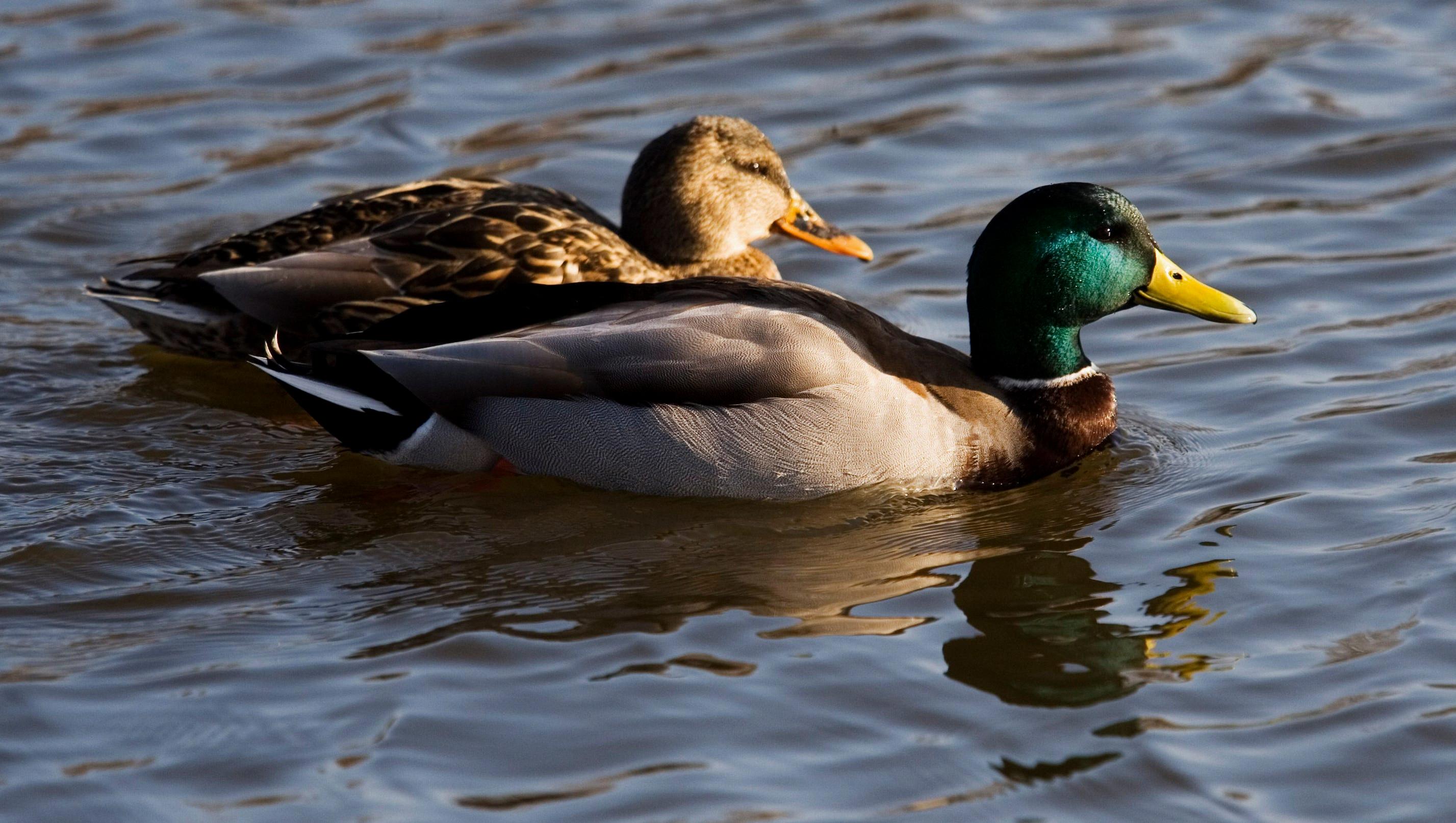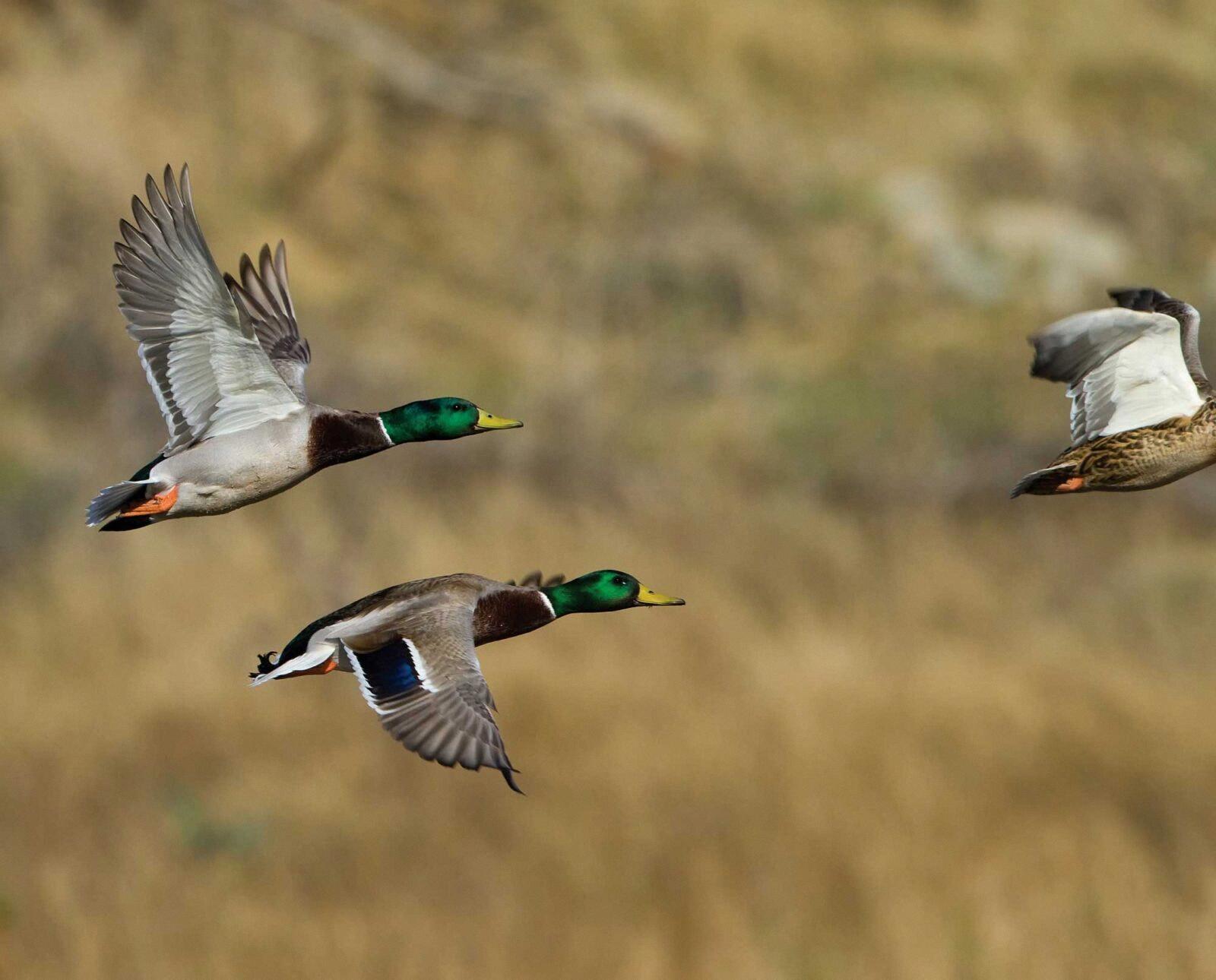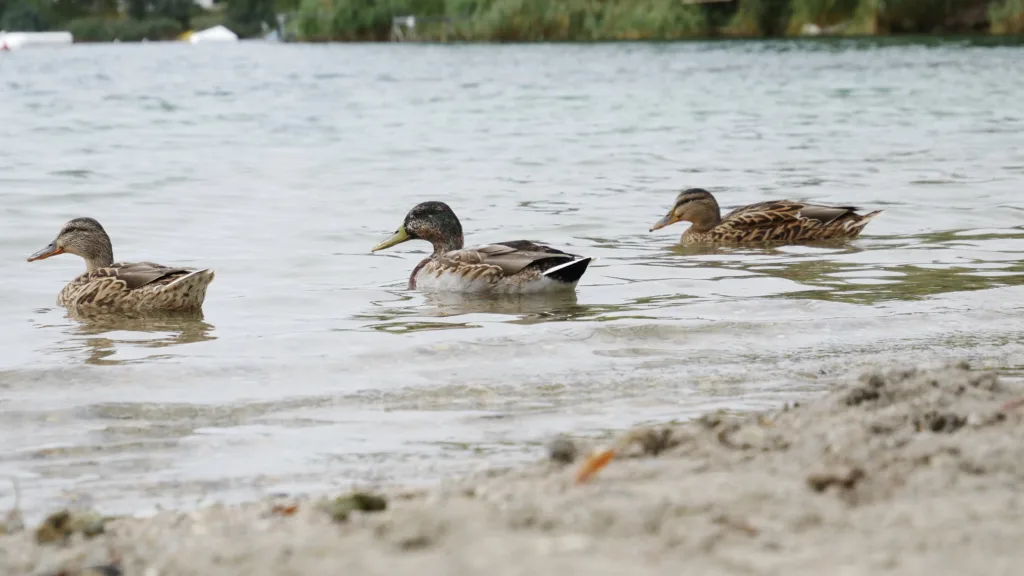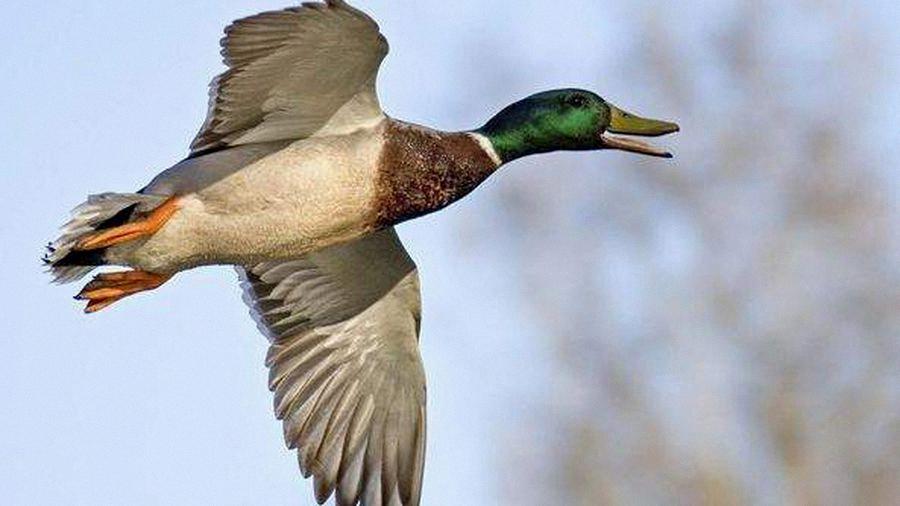Mallards, one of the most common types of ducks found in North America, are fascinating creatures that have been a subject of study for bird enthusiasts and researchers alike. One of the most common questions that people ask aout Mallards is whether they mate for life or not. In this article, we will explore the mating habits of Mallards and answer this question in detail.
Firstly, it is important to understand that Mallards are not entirely monogamous. While they do form pair bonds, these bonds usually last only for a single mating season, which typically lasts from late winter to early summer. During this time, the male and female Mallard will court each other, engage in displays of affection, and mate. Once the mating season is over, they will go their separate ways and find new mates the following year.
That being said, it is not uncommon for Mallard pairs to reunite during subsequent mating seasons. In fact, studies have shown that around 80% of female Mallards will return to the same breeding site year after year, and some will even reunite with their previous mate. This suggests that while Mallards do not mate for life, they do have an affinity for certain partners and may form long-term bonds with them.
It is also worth noting that not all Mallard pairs are faithful during the mating season. Male Mallards, in particular, are known to engage in extra-pair copulations, where they will mate with females other than their mate. While this behavior may seem unfaithful, it is actually quite common among birds and does not necessarily indicate a lack of affection or loyalty towards their partner.
Mallards do not mate for life, but they do form seasonal pair bonds that can last for multiple breeding seasons. While they may not be entirely faithful during the mating season, they do show an affinity for certain partners and may reunite with them in subsequent years. Overall, Mallards are fascinating creatures with complex mating habits that continue to intrigue scientists and bird enthusiasts alike.
Do Mallard Ducks Maintain a Lifelong Mating Bond?
Mallard ducks do not keep the same mate for life. They form seasonal bonds, also knon as seasonal monogamy, in which new bonds are formed each breeding season. This type of bonding behavior is common in waterfowl species, and about 49 percent of all waterfowl species exhibit seasonal monogamy. During the breeding season, male mallard ducks court females by displaying their colorful plumage and performing various courtship behaviors. Once they have paired up, they will mate and the female will lay eggs in a nest. After the breeding season is over, the bond between the male and female will typically dissolve, and they will seek out new mates during the next breeding season.

Source: jsonline.com
Do Ducks Grieve the Loss of a Mate?
Yes, ducks do mourn the loss of a mate. They are knwn for forming strong bonds with their partners and may stay with the same mate for several years or even their entire lives. When a mate dies or is separated from them, it can cause significant distress for the surviving duck. They may become visibly depressed or withdrawn, and some may even stop eating or interacting with others. This behavior has been observed in both male and female ducks, and the intensity and duration of the mourning period can vary depending on the individual duck and the strength of their bond with their mate. Overall, ducks are social animals that form close relationships with their partners, and losing a mate can have a significant impact on their emotional well-being.
Ducks That Mate For Life
Geese, swans, and whistling ducks are examples of ducks that mate for life. This type of mating is called perennial monogamy, where a pair of ducks stay together for ther entire breeding season and can even mate for multiple breeding seasons. In contrast, most species of ducks practice seasonal monogamy, where they form pair bonds that typically last for four to eight months, often with a new mate each year. These ducks may switch mates for each breeding season, depending on factors such as availability, compatibility, and genetic diversity. However, some species, like the Mandarin duck, can also exhibit some form of long-term pair bonding. Overall, there is considerable variation in the mating behaviors of different duck species, and some birds are more monogamous than others.
Are Mallards Monogamous?
Mallards, which are a species of duck, are generally considered to be socially monogamous. This means that Mallard pairs tend to mate and remain togeter for at least one breeding season. However, it is important to note that while Mallards are socially monogamous, they are not sexually monogamous. Paired males will often engage in extra-pair copulations with females other than their mates. This behavior is not uncommon among birds and is consensual in many species. However, in the case of Mallards, male ducks will often forcibly mate with females, which can involve several males chasing and mating with a single female. Therefore, while Mallards may appear monogamous on the surface, their sexual behavior is more complex and involves multiple partners.
Mating Habits of Male Ducks
Male ducks will not try to mate with another male. Unlike female ducks, who are known to form sexual relationships and bonds with other females, males are not known to engage in same-sex behavior. Male ducks are highly competitive and aggressive towards other males during the breeding season, and they will actively seek out females to mate with to establish their dominance and secure their breeding rights. Therefore, it is highly unlikely that a male duck would try to mate with another male.

Source: projectupland.com
Can Two Female Ducks Mate?
Yes, female ducks can engage in sexual interactions with each other, including attempts at mating. This behavior is not uncommon and has been observed in various species of ducks. However, it is important to note that even if two female ducks do mate, they will not be able to produce fertilized eggs. This is because fertilization requires the presence of male sperm, which is not possible in a same-sex pairing. Nonetheless, female ducks may engage in same-sex sexual behaviors for a variety of reasons, including social bonding, stress relief, or simply for pleasure.
Can Geese and Ducks Mate?
Geese and ducks are two different species of birds, and although they may look similar in some ways, they are not able to interbreed. Even if a goose attempts to mate with a duck, or vice-versa, the resulting eggs would not be fertile. This is because geese and ducks have different numbers of chromosomes, which are responsible for carrying genetic information. As a result, their reproductive systems are not compatible. However, it is not uncommon for birds to attempt to mate with oter species, especially if they are kept in close proximity. Each breed will likely prefer to mate with other breeds of similar size, but this is not always the case. Ultimately, while geese and ducks may have some similarities, they are not able to mate and produce viable offspring.
Can Ducks Lay Eggs Without a Partner?
Yes, ducks can lay eggs without a partner, also known as a drake. Female ducks, called hens, are capable of producing and laying eggs on their own. However, for the eggs to hatch into ducklings, a drake is required to fertilize the eggs. Without a drake, the eggs will remain unfertilized and will not hatch into ducklings. It’s important to note that ducks tend to be better year-round layers than chickens, and they can continue their egg production even during the winter months without any added light.
Can Male Ducks Coexist Without Females?
Yes, male ducks can live together without females. In fact, male ducks are social animals and can form strong bonds with each other. If you raise male ducks in the absence of females, they will get along perfectly well. An all-male flock, also known as a drake flock, can be a great option for those who are interested in having pet ducks and have no interest in breeding. Drake flocks require less care than mixed flocks because they do not need extra calcium or layer feed that is required for egg production. However, it is important to note that male ducks can become territorial duing the breeding season, so it is best to separate them during this time to avoid any aggression or fights. Overall, male ducks can live together without females and can form strong social bonds with each other.

The Benefits of Having Two Male Ducks with One Female
The phenomenon of two male ducks being seen with one female duck is known as a “triangular mating system”. This situation can occur when there is a high population of male ducks and a limited number of female ducks available for mating. In such cases, two male ducks may court the same female and form a temporary bond to increase their chances of mating with her. However, only one male duck will successfully mate with the female, as ducks practice sexual selection. The unsuccessful male duck may stay with the pair for some time or may leave to look for anther mate. It is important to note that this behavior is not a common occurrence in the wild and is considered relatively rare.
Can Ducks Be Intersex?
No, a duck cannot be both sexes. However, there are some species of birds, including ducks, that can exhibit a phenomenon known as sequential hermaphroditism, were an individual changes its sex at some point in its life. In the case of ducks, they are protogynous hermaphrodites, meaning they are born as females and can later change into males. This occurs when a female duck is exposed to high levels of testosterone, either through their own hormonal production or through environmental factors. The hormonal changes trigger the development of male characteristics such as a larger size, brighter plumage, and the ability to mate with females. However, it’s important to note that this is a rare occurrence and not all female ducks will undergo this sex change. Additionally, once a female duck has changed into a male, it cannot change back to being a female.
Do Ducks Have Emotions?
Yes, ducks have feelings. They experience a range of emotions including happiness, sadness, fear, anxiety, and aggression. They can form strong bonds with other ducks and even with humans who care for them. Studies have shown that ducks exhibit empathy towards their flock mates, and they can also experience stress and trauma when separated from their companions or when subjected to negative experiences such as confinement and mistreatment. Therefore, it is important to treat ducks with care and respect, providing them with adequate living conditions that allow them to socialize, roam, and express their natural behaviors.
Animals That Stay With Their Mates Forever
The animal that stays with its mate forever is the gray wolf. Gray wolf packs have a well-defined social structure, with the alpha male and his mate at the top of the hierarchy. The alpha male and female are the leaders of the pack and typically stay together for life. They work together to hunt, protect the pack, and raise their young. This monogamous relationship ensures the stability and success of the pack. Other members of the pack may also form bonds, but the relationship between the alpha pair is the most important and long-lasting.

Source: tampabay.com
The Effects of Inbreeding in Ducks
Yes, inbreeding does occur in ducks. Inbreeding is the mating of closely related individuals, and it can lead to genetic abnormalities and deformities. In the case of ducks, one example is the crested duck, which has a fancy hair-like feather on its head. However, this trait is a result of inbreeding and is oten associated with other deformities. Breeding a crested duck with another crested duck can result in many offspring dying before hatching, while others may emerge with twisted necks or other problems that leave them disabled. Therefore, it’s important for breeders to be aware of the potential consequences of inbreeding and to avoid mating closely related ducks to prevent genetic abnormalities.
Conclusion
In conclusion, Mallard ducks are fascinating birds with complex social behaviors. While they form seasonal monogamous pair bonds, paired males often pursue other females. Extra-pair copulations are common, and in the case of Mallards, they are often forced by males. Despite these behaviors, Mallard pairs do exhibit signs of monogamy and form strong bonds for the duration of the breeding season. As with many species of ducks, Mallards do not form long-term pair bonds and often mate with diferent partners each year. Understanding these social behaviors can provide insight into the complexities of avian relationships and the importance of studying the behavior of birds in the wild.
